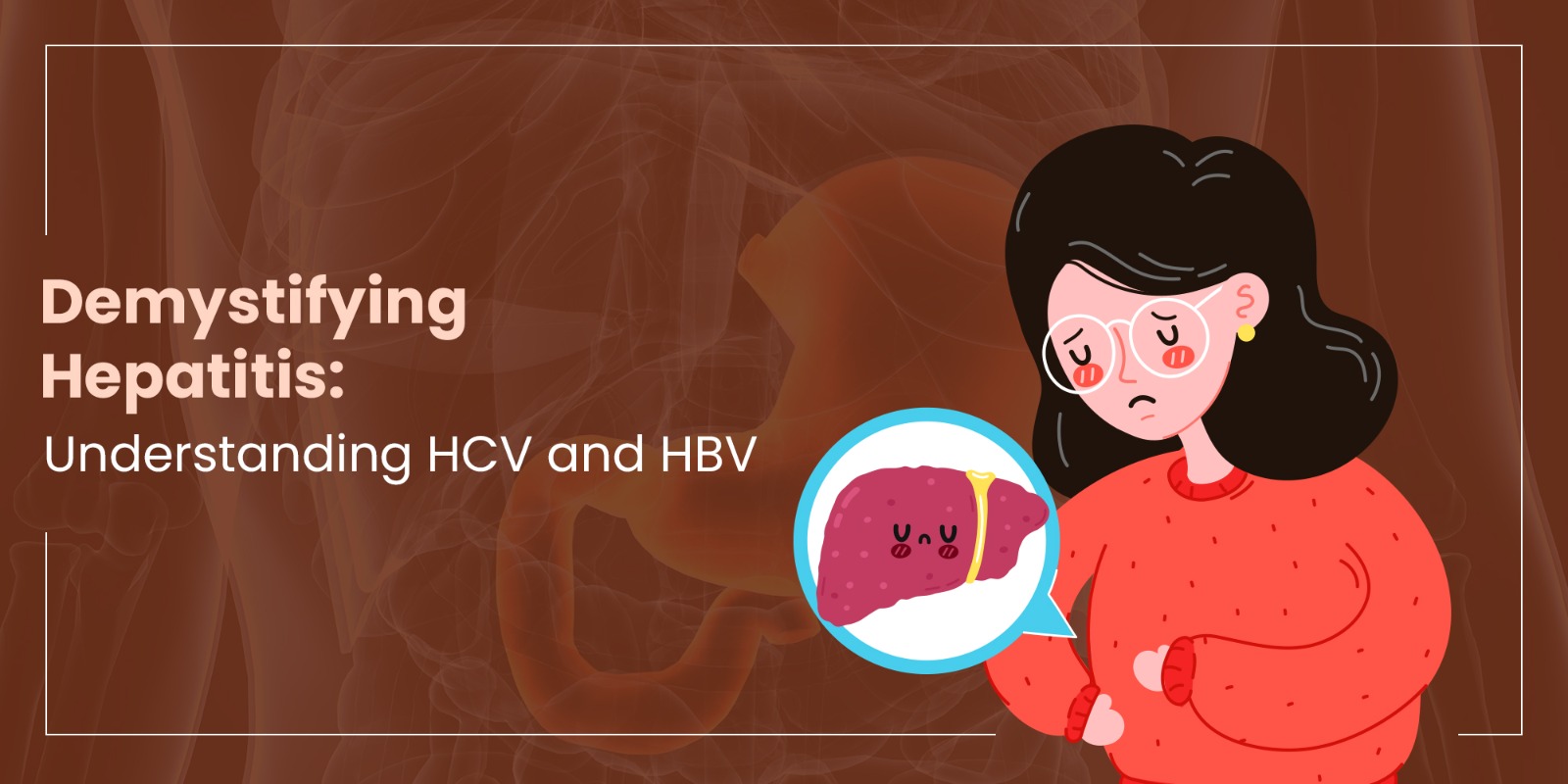Hepatitis is a viral infection that causes inflammation of the liver. It is a global health concern and affects millions of people worldwide. Among the types of hepatitis viruses, Hepatitis C (HCV) and Hepatitis B (HBV) are the most common and prevalent. This article will discuss every aspect of Hepatitis C and B, like causes, transmission, symptoms, and treatment options.
What is Hepatitis C?
The Hepatitis C virus, or HCV, causes hepatitis C. It is a bloodborne pathogen that affects the liver. This strain of hepatitis often progresses asymptomatically for years and silently damages the liver without causing any symptoms. The symptoms remain unnoticed in many cases. This nature of the virus makes it challenging for the affected individuals to be aware of their liver health until liver damage becomes severe.
How is Hepatitis C Transmitted?
- Infected syringe usage, sharing infected drug needles
- Unscreened blood transfusions
- One can also get in healthcare settings with poor infection control practices. Transmission can occur through contaminated medical equipment.
- Unprotected intercourse.
What are Hepatitis C Symptoms?
Symptoms of acute HCV infection may include:
- Fatigue
- Fever
- Nausea
- Abdominal pain and cramps.
If it gets unnoticed, it can lead to
- Liver cirrhosis
- Liver cancer
- End-stage liver disease if left untreated.
How to Prevent and Treat Hepatitis C?
- Prevention efforts focus on preventing needle exchange, ensuring safe blood transfusions, and promoting awareness of safe sex practices.
- Direct-acting antiviral (DAA) medications have transformed the treatment scene for HCV. These medications offer minimal side effects and shorter treatment durations compared to older regimens.
What is Hepatitis B?
Hepatitis B is caused by the Hepatitis B virus (HBV), a bloodborne pathogen prevalent worldwide. HBV can cause both acute and chronic infections, and chronic HBV infection can cause significant long-term health risks.
How is the Hepatitis B Virus transmitted?
- HBV is highly contagious. It can be transmitted through contact with infected blood or bodily fluids, including during childbirth, unprotected sexual intercourse, and needle sharing among drug users.
- This virus can also survive outside the body for a prolonged period of time, increasing the risk of its transmission through contaminated surfaces and even medical equipment.
What are the symptoms of Hepatitis B Virus?
- Symptoms of acute HBV infection may resemble those of HCV and can include jaundice, dark urine, and abdominal pain.
- In the chronic stage, it can lead to liver cirrhosis, liver failure, and an increased risk of liver cancer.
How to Prevent and Treat Hepatitis B Virus?
- Vaccination against HBV is highly effective
- Antiviral medications can help control HBV replication and reduce the risk of complications in chronic infection.
How is hepatitis detected?
- Blood tests
- Liver function tests
- Imaging tests (such as ultrasound, CT scan, or MRI)
- Liver biopsy
- Serologic tests
- Hepatitis detection kits (such as rapid diagnostic tests or home testing kits).
Early screening for hepatitis B and C viruses is essential for timely detection and intervention. These viruses can silently damage the liver over time, leading to severe complications if left untreated. Prompt diagnosis through screening tests helps one to seek appropriate medical care, potentially preventing liver cirrhosis, cancer, and other life-threatening conditions. With early detection, treatment options can be explored to manage the infection effectively, improving long-term health outcomes.
Read our blog: Hepatitis Basics and Prevention

